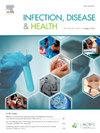Nurses’ experiences of providing oral care to hospitalised patients: A qualitative study
IF 2
Q2 PUBLIC, ENVIRONMENTAL & OCCUPATIONAL HEALTH
引用次数: 0
Abstract
Background
Oral care has a critical role in hospital-acquired infection prevention, is part of fundamental nursing care, yet is poorly undertaken in hospital. The study's aim was to understand Australian nurses' perceptions of their role in oral care and their experience providing oral care in hospital, with the focus on enablers and barriers.
Methods
A qualitative exploratory descriptive design. Seven registered nurses working in acute adult in-patient hospitals in Australia participated in three semi-structured focus groups in October and November 2023. Data analysis followed thematic analysis procedures. The study is reported using Standards for Reporting Qualitative Research.
Results
Three themes were identified: nurses' perceptions of their role in oral care; barriers to providing oral care for hospitalised patients; and enablers to providing oral care for hospitalised patients. Nurses’ experiences revealed expectations for different clinical settings. In the intensive care unit where patients required mechanical ventilation, oral care was inextricably linked to that care. In palliative care or oncology units, oral care was intrinsically linked to holistic care. Reported challenges include time and staffing constraints; limited resources; nurses' limited knowledge about the importance of oral care, and patient-related factors. Opportunities to promote oral care include empowering patients and educating nurses about the importance of oral care to health.
Conclusions
Nurses have a pivotal role in oral care and it is important that this is part of patient care in hospital. The findings will inform a comprehensive co-design process to develop an intervention to be examined in a multi-centre randomised control trial.
护士为住院病人提供口腔护理的经验:一项质性研究。
背景:口腔护理在预防医院获得性感染中起着至关重要的作用,是基础护理的一部分,但在医院却很少开展。该研究的目的是了解澳大利亚护士对自己在口腔护理中的作用的看法,以及她们在医院提供口腔护理的经历,重点是促进因素和障碍。方法:采用定性探索性描述性设计。在澳大利亚急性成人住院医院工作的7名注册护士于2023年10月和11月参加了三个半结构化焦点小组。数据分析遵循专题分析程序。该研究报告采用定性研究报告标准。结果:确定了三个主题:护士对自己在口腔护理中的角色的看法;为住院病人提供口腔护理的障碍;为住院病人提供口腔护理。护士的经历揭示了对不同临床环境的期望。在重症监护室,病人需要机械通气,口腔护理是不可分割地联系在一起的护理。在姑息治疗或肿瘤科,口腔护理与整体护理有着内在的联系。报告的挑战包括时间和人员限制;有限的资源;护士对口腔护理重要性及患者相关因素的认识有限。促进口腔保健的机会包括增强患者权能和教育护士关于口腔保健对健康的重要性。结论:护士在口腔护理中起着关键作用,这是医院患者护理的重要组成部分。研究结果将为综合共同设计过程提供信息,以制定干预措施,并在多中心随机对照试验中进行检查。
本文章由计算机程序翻译,如有差异,请以英文原文为准。
求助全文
约1分钟内获得全文
求助全文
来源期刊

Infection Disease & Health
PUBLIC, ENVIRONMENTAL & OCCUPATIONAL HEALTH-
CiteScore
5.70
自引率
5.70%
发文量
40
审稿时长
20 days
期刊介绍:
The journal aims to be a platform for the publication and dissemination of knowledge in the area of infection and disease causing infection in humans. The journal is quarterly and publishes research, reviews, concise communications, commentary and other articles concerned with infection and disease affecting the health of an individual, organisation or population. The original and important articles in the journal investigate, report or discuss infection prevention and control; clinical, social, epidemiological or public health aspects of infectious disease; policy and planning for the control of infections; zoonoses; and vaccination related to disease in human health. Infection, Disease & Health provides a platform for the publication and dissemination of original knowledge at the nexus of the areas infection, Disease and health in a One Health context. One Health recognizes that the health of people is connected to the health of animals and the environment. One Health encourages and advances the collaborative efforts of multiple disciplines-working locally, nationally, and globally-to achieve the best health for people, animals, and our environment. This approach is fundamental because 6 out of every 10 infectious diseases in humans are zoonotic, or spread from animals. We would be expected to report or discuss infection prevention and control; clinical, social, epidemiological or public health aspects of infectious disease; policy and planning for the control of infections; zoonosis; and vaccination related to disease in human health. The Journal seeks to bring together knowledge from all specialties involved in infection research and clinical practice, and present the best work in this ever-changing field. The audience of the journal includes researchers, clinicians, health workers and public policy professionals concerned with infection, disease and health.
 求助内容:
求助内容: 应助结果提醒方式:
应助结果提醒方式:


